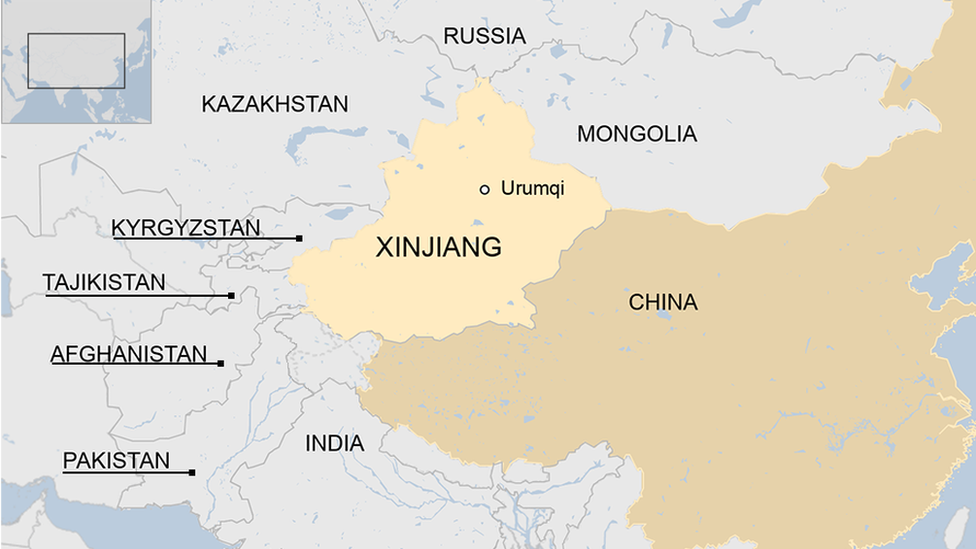The knife attack that changed Kunming
- Published
Carrie Gracie: "There are victims on all sides here"
China is in the midst of a massive security crackdown after a series of terror attacks it blames on Muslims from the Uighur ethnic minority in north-west Xinjiang province.
In recent weeks, hundreds of suspects have been arrested and mass sentencing rallies have been broadcast on state TV.
One of the most notorious cases is that of three men and one woman who await sentencing for the savage Kunming station attack in which 29 people were hacked to death and more than 100 others wounded.
One of the victims is Shi Kexiang, who was slashed across the neck by a stranger armed with a sword and dressed in black. She's been in a coma ever since.
For four months, Shi Xuefa has bent over a hospital bed begging Kexiang to hear him. The doctors are kind and the government is paying the medical bills but Xuefa has no idea whether his sister will ever wake up.
For a drought-stricken farming family who were only at the station that night because they were returning to back-breaking construction jobs far from home, this tragedy has wrecked even the modest hopes they had of life.
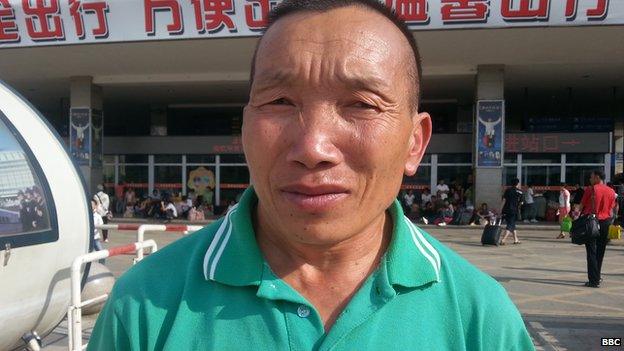
Shi Xuefa (pictured) is unsure if his sister will ever recover from her injuries
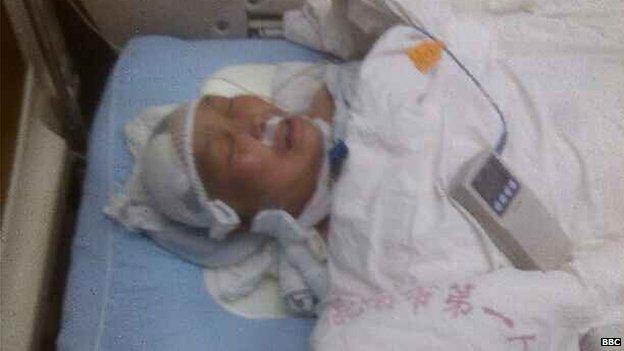
Now in a coma, Shi Kexiang (pictured) was slashed by an armed stranger during the attack
The speed, savagery and randomness of the attack on a sleepy provincial station shook China. Police blamed Uighur separatists intent on jihad.
And China's Xinjiang problem, which had often seemed like a little local difficulty on a far away fringe, suddenly felt like a threat to everyone everywhere.
Some in the media even called it China's 9/11 until state censors told them to tone down the coverage for fear of provoking riots against China's Muslims.
'Teach them a lesson'
At Kunming station, there's now airport-style security and a heavily-armed counter-terrorism force in dark camouflage conspicuously practicing their drills.
Shi Xuefa returned to the scene of the killings to describe what happened.
"I'd just carried some of the luggage up to the waiting room and Kexiang was downstairs looking after the rest of the bags," he said.
"I heard shouting and when I rushed back down, everyone who could get away had run. But there were bodies strewn across the floor and I found my sister lying in a pool of blood."
For 15 minutes, Xuefa staunched Kexiang's neck wound with his fingers. When emergency services finally arrived, they were completely overwhelmed and piled the wounded and the dead into public buses to be rushed to hospital together.
Xuefa doesn't bear a grudge against law-abiding Uighurs for what happened, but he believes those who killed innocents in cold blood should face the death penalty.
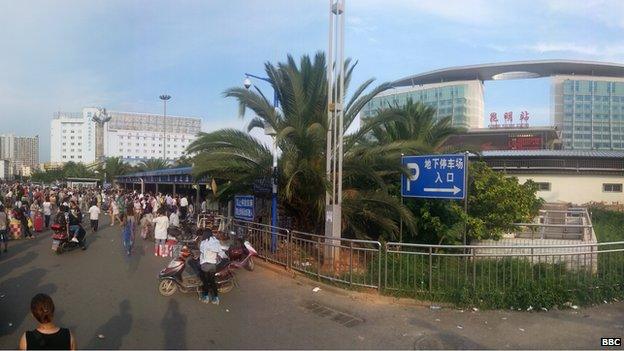
Life at Kunming Station may have largely gone back to normal but memories of the attack are still fresh
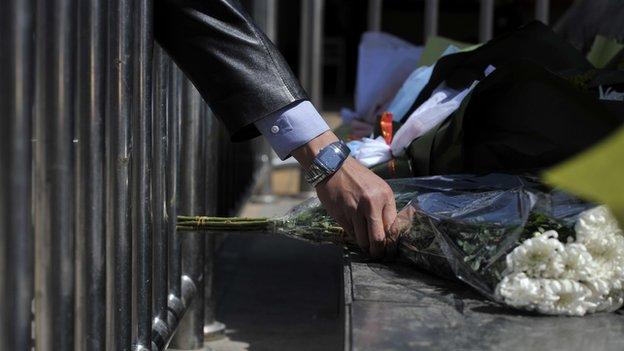
The attack on Kunming Station in March left 29 people dead and more than 100 others wounded
"Among the Uighurs, there are more good guys than bad guys. But for the bad guys, the government has to crack down hard on them to teach the others a lesson," he said.
Identifying the bad guys while not alienating the good guys is a challenge for China's policy-makers. Beijing insists the root of the problem is outside China, that militant Islam is spreading from Central Asia through social media to poison the hearts of young Uighurs in Xinjiang.
Beijing's answer: more security. A mix of counter-terrorism training, armed police on the streets and heavy sentences for those who exchange extremist material online.
But human rights groups and exiled Uighurs say these policies are making the problem worse and that the root-cause of the violence is that Uighurs are being increasingly outnumbered and marginalised in their homeland.
They also warn that efforts to root out or control fasting, the wearing of beards and other forms of religious or cultural expression are alienating Uighurs further.
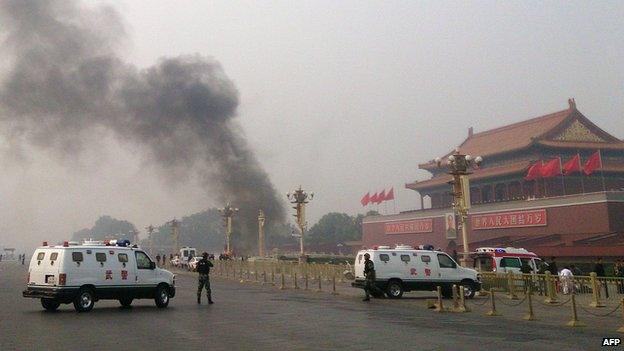
Chinese authorities blamed Uighur separatists for last year's attack in Tiananmen Square
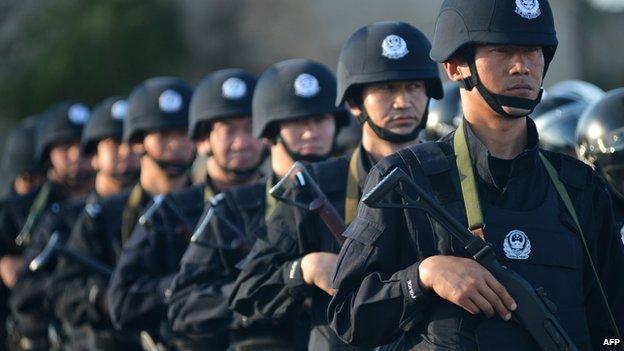
China has stepped up security measures after a series of attacks blamed on Uighur extremists
Raffaelo Pantucci, who researches Xinjiang security at the Royal United Services Institute, said China was not the first to confront some of these challenges.
"At the moment, China is having a debate about the melting pot versus the multicultural," Mr Pantucci said. "We saw that happen in Europe a few years ago and I don't think it was completely resolved in Europe what was the more successful approach."
"On top of this, you have a one-party state that has a very clear determination of how society should be structured. How do you, within a country of 1.4bn people, accommodate a minority community of 10 million people?"
Accommodation is not easy. Friday prayers were once an occasion for all of Kunming's Muslims to gather at the mosque. Before the station killings that included hundreds of Uighurs, now there are barely two dozen. And on the way out, police stop every one of them to check their papers.
This daily diet of grim news from Xinjiang has reinforced their isolation and now Kunming's Uighur residents hardly dare venture into public.
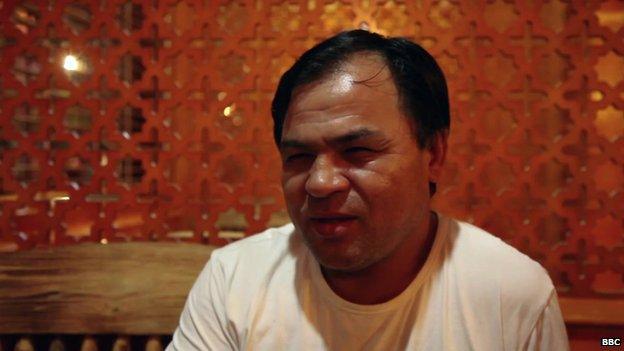
Uighurs like Mamati (pictured) say they have faced discrimination from the public since the attacks
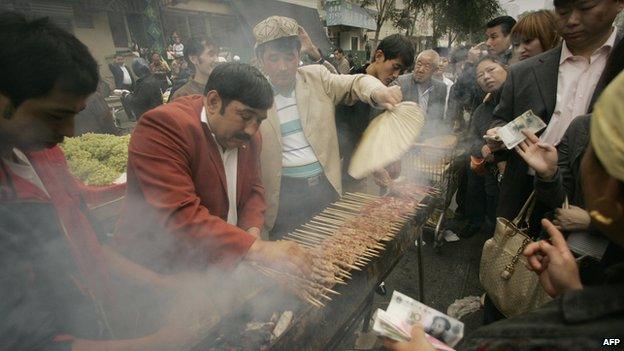
In this file photo, Muslim Uighurs celebrate the end of Ramadan in Beijing
At the Tianshan Muslim Restaurant, business has nose-dived.
On the evening I visited, I was almost the only diner. Locals are staying away and the Uighur tour parties who used to come from Xinjiang are now unable to leave the province.
Police visit the restaurant regularly to ask questions and check residence permits. It was never easy for a Uighur to find a job or rent a flat in Han Chinese cities, but the restaurant manager, Mamati, said it was now nearly impossible.
"On the train or the bus, people move away from us. They're scared of us. But we're scared of them too," he said.
"We can't go out alone any more. We only go in groups and even then, people curse us and tell us to go home or go back to Xinjiang. But I'm Chinese and I'm not a bad man."
Mamati and his staff are Uighurs but they are also Chinese citizens. They say they are not interested in Islamism or separatism.
But as the violence in Xinjiang goes on and the security crackdown escalates, life for Uighurs across China has become harder and anyone can become a terror suspect.
- Published11 July 2014
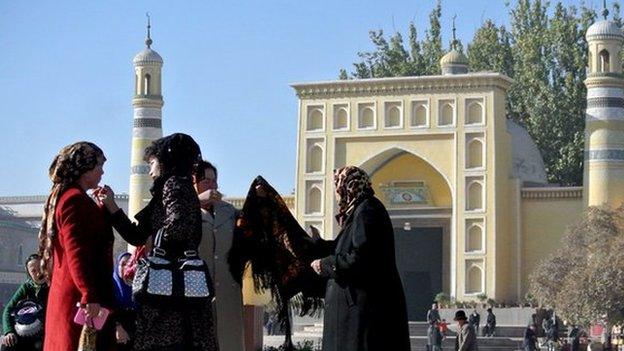
- Published26 September 2014
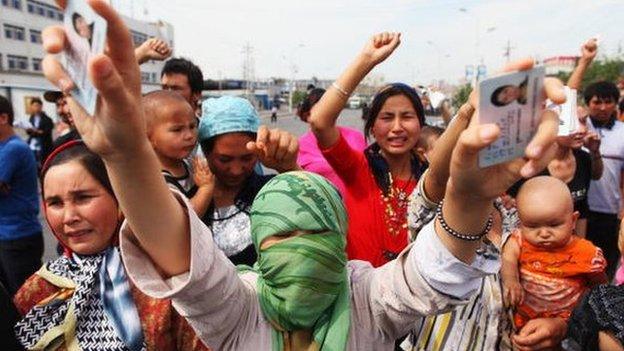
- Published24 May 2022
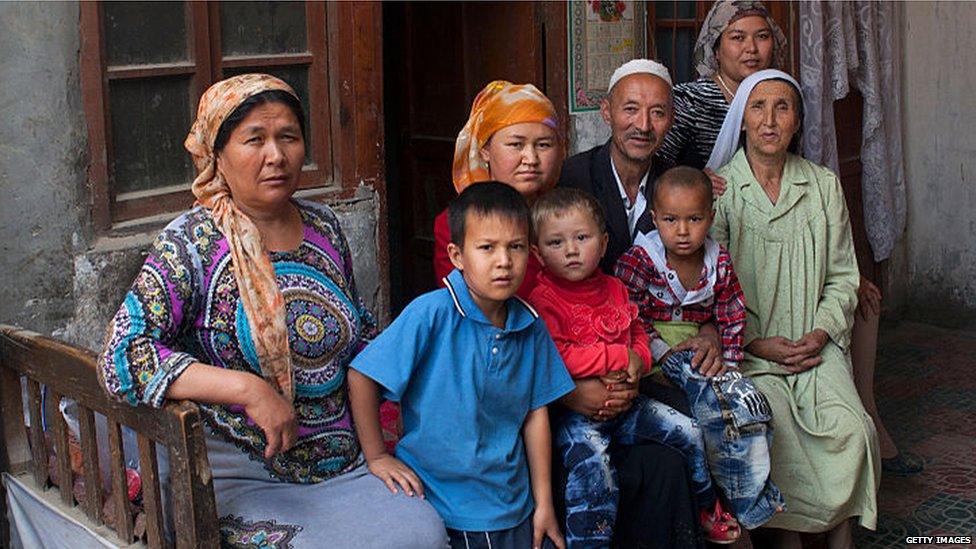
- Published3 March 2014
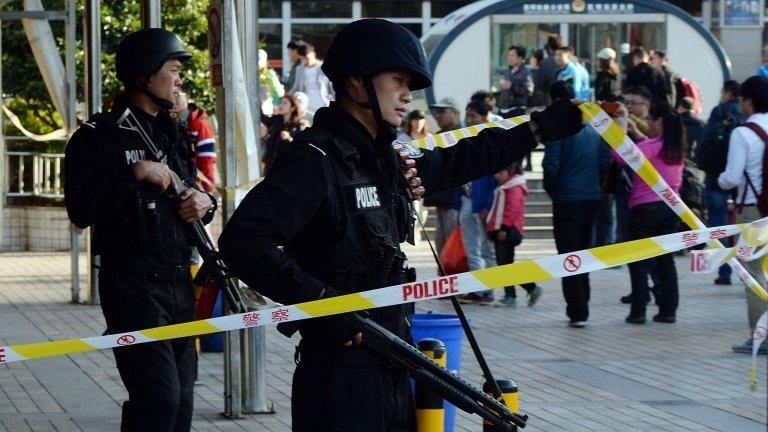
- Published27 June 2014
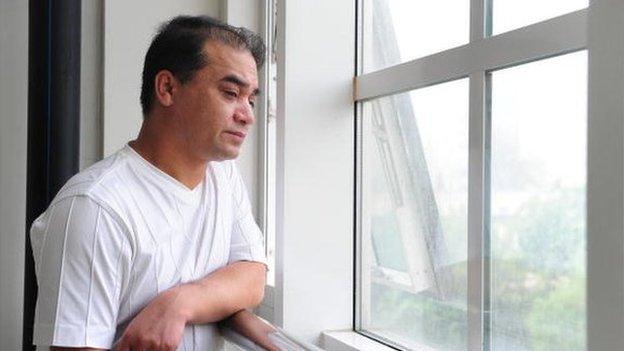
- Published25 August 2023
